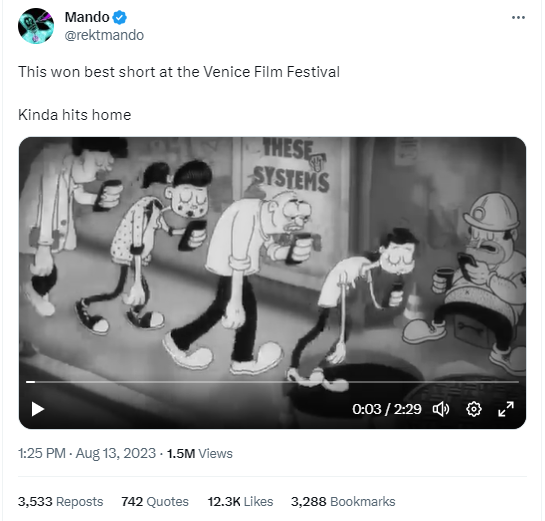Freddie DeBoer asks Whether College is Worth It . . .
Freddie DeBoer's newest article raises an issue of importance for so many of us these days: Whether College is Worth It. I recommend Freddie's entire article, but here's an excerpt to introduce the topic:
Those of you who have read my (brilliant, eye-opening, majestic) first book know that I do indeed think we are pushing too many people into the college pipeline. But my resistance is a little different than most; it’s not a reflection on the cost of college, at least not for the students. I think a) we push so many people into college because the Reagan-Thatcher neoliberal consensus destroyed middle class jobs in industry and manufacturing and we don’t have many alternatives and b) we shouldn’t push kids into college because most of those who have to be pushed will prove to lack the cognitive and soft skills necessary for them to capitalize on their degrees anyway. When people obsess over the college pipeline, they do so because they think that college can turn everybody into a busy little meritocrat, the kind who go on to get jobs at Google or a SLAC or the Ford Foundation or the Department of the Interior. But the high school excellence to college to enviable PMC employment cycle depends on a level of natural intellectual talent, plus the ability to delay gratification and keep to a schedule etc., that many people don’t have. So we need other models, and in the book I explore some.Here’s the thing, though. In the debate as it exists in the real world, I think a really trenchant question for the kids who forego college is this: what will you do instead? How will you spend those four-plus years of your life, if not in school?


